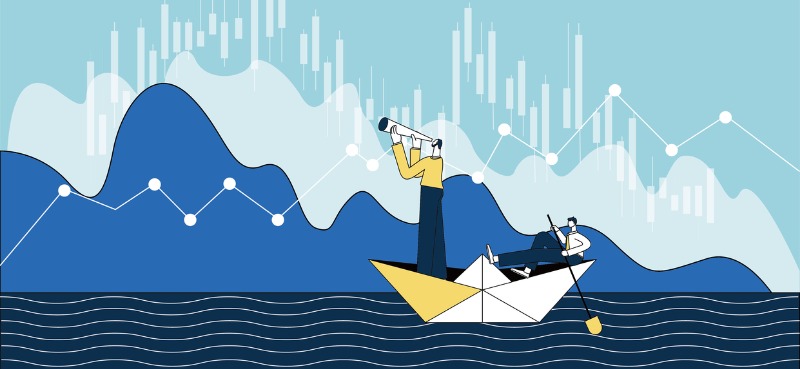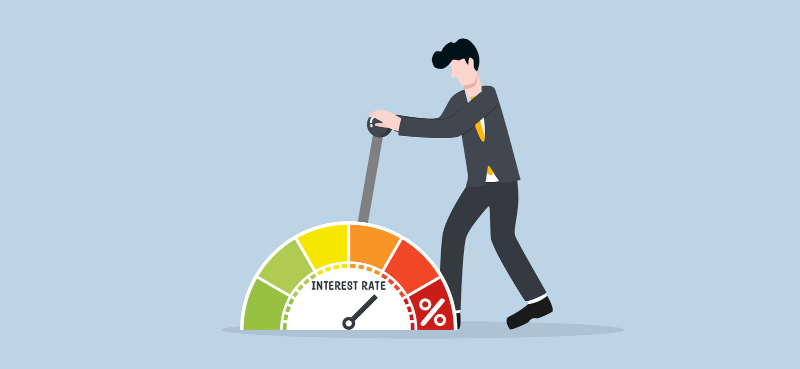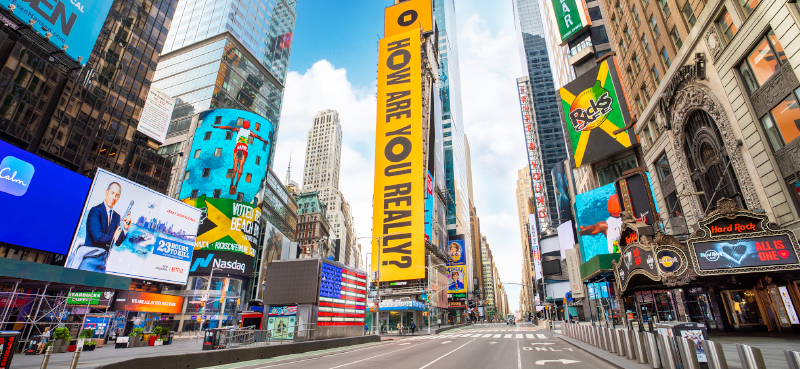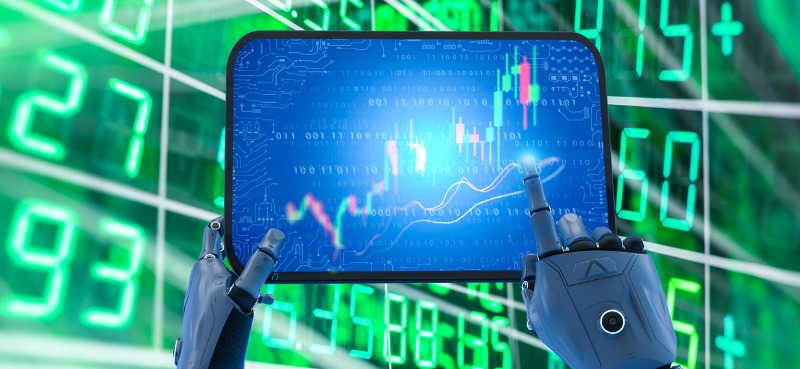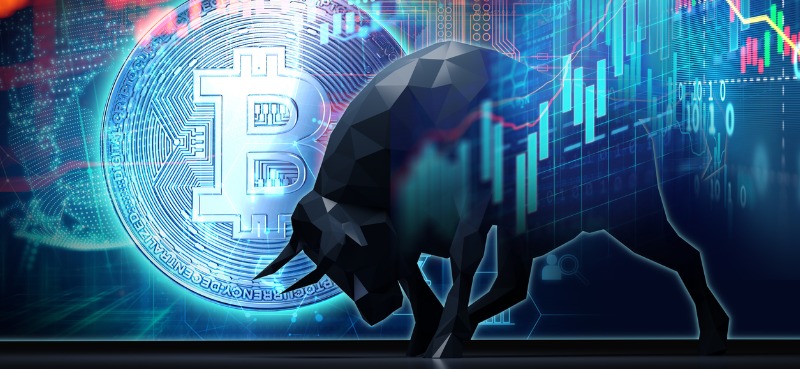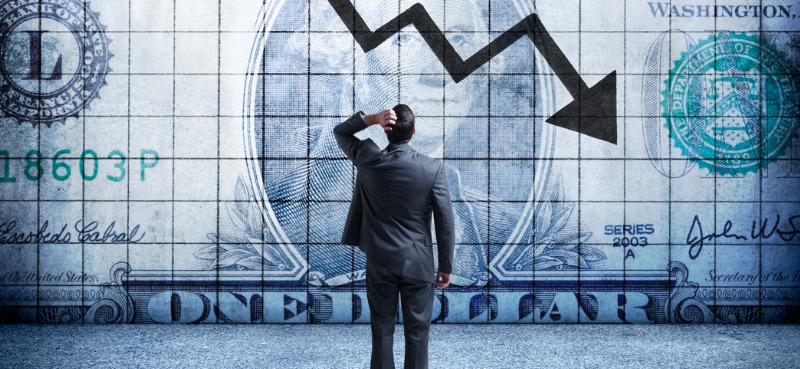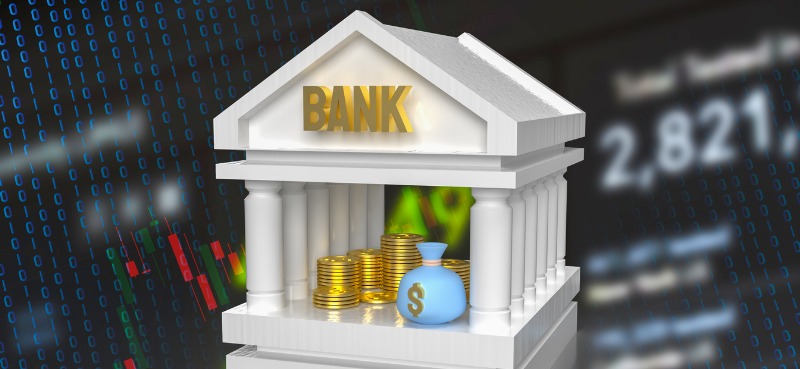I’m getting a lot of questions about last week’s monologue, when I stated I’d gone bearish.
While data shows inflation is coming down—along with the price of oil (the sector with the largest impact on consumers)—the Fed seems hell-bent on more interest rate hikes.
I share what I need to see to rejoin the bullish camp… and why I’m struggling to find a growth catalyst for markets.
But it’s not all negative…
There are two sectors you can scale into now… and reap the rewards once the Fed finally realizes its plan is working and eases rates. (Hint: One is biotech.)
- The Fed is ignoring the data on inflation [0:30]
- Oil prices’ critical impact on consumers [2:00]
- What I need to see to become bullish again [7:30]
- What to look for in earnings estimates [12:04]
- Why “don’t fight the Fed” is a two-way street [21:00]
- Two sectors to scale into right now [28:50]
Wall Street Unplugged | 942
What I need to see to turn bullish…
Announcer: Wall Street Unplugged looks beyond the regular headlines heard on mainstream financial media to bring you unscripted interviews and breaking commentary direct from Wall Street right to you on main street.
Frank Curzio: How’s it going out there? It’s September 6th. I’m Frank Curzio, host of the Wall Street Unplugged podcast, where I break the headlines and tell you what’s really moving these markets. Hopefully, you enjoyed the nice long weekend. College football is starting, pro football starts next week, which is the greatest thing in history, which is awesome. But now, it’s back to work. Summer kind of officially over. And I’m starting to get a lot of questions because of my last monologue where I told you I’m nervous about the markets.
Frank Curzio: So, the Fed is clueless, looking to raise rates significantly from here while shrinking its balance sheet at the same time as what? China is in horrible, horrible shape. Horrible shape. Europe is even worse. US indicated showing clear signs inflation is moderating, velocity of money, levels not seen since the Great Depression, where money is clearly, clearly flowing out of the market. The Fed’s achieving its goal, although they’re not admitting it. The housing market, we can significantly… Where even going forward, we’re not going to see, “Oh, wow, housing’s going up in another leg up.” No, there’s few people taking out mortgages with rates over 4.5%, 5%, and now over 5.5%, they almost pushed to 6%. And remember, the Fed wants to go higher and higher here.
Frank Curzio: Look what’s going on with the 10-year high, 3.3. The two-year? Forget it. Unbelievable showing signs of recession, because it’s inverted. PMI services, terrible, horrible number. You say Frank, “Well, rent.” Yes. rent, big component of CPIs going to stay high for a bit. So will food, not all food. We’ve seen that roll over as well. Explain that in a minute. We’ve seen energy roll over.
Frank Curzio: And there’s lots of bulls out there. Lots of bulls. And they make a great case. Looking at supply demand and balances and what’s going on… I covered oil for over 20 years. I visited major shale areas. I talked to people who are much, much smarter than me. And there’s one certainty when it comes to oil, that oil always, always, always adjusts. It’s a cyclical market. It’s the ultimate cyclical market. When higher prices result, many people are finding ways to cut back. And they do this every time the price of oil surges. Every time. You can say, “Well, uranium’s cyclical, and corn is cyclical, or this commodity is cyclical.” Not like oil. Oil hits our wallet immediately, right? With gas prices, energy prices, electricity price. It hits us immediately and we adjust. We always adjust. We saw it. We’re seeing it in the band numbers.
Frank Curzio: Now, you’re right. When it comes to Russia, when it comes to shutting off, which isn’t a real surprise that they shut off oil, right? Most analysts knew that was going to happen. It was on the table, or in the works, for over a month. Russia saying that maintenance is causing it. Well, we know it’s not maintenance. But let’s see what happens, because when we’re looking at oil as it goes higher, people adjust. Could I be wrong on this? Absolutely. Absolutely. But you’re looking at oil coming down pretty sharply.
Frank Curzio: And not only that hurricane season, what happened to hurricane season? Nonexistent. Nonexistent, no hurricanes, three storms named. I’m afraid to use that term, non-existent, given I live in Florida. I don’t want to jinx it. But two straight months from July 3rd until today, where there’s been no hurricanes named, no storms. And if you look at August specifically, this is the first time, just to put this in perspective because I had to look this up, in 25 years where in August, had been no hurricane’s named for the month. In fact, if you date back for seven decades, this only happened twice, two other times. Now, hurricane season extends through November and we’ve gotten very bad hurricanes. I’m not saying that everything’s cool. But when you see arcades come, it’s a nice pop in energy prices usually. And we don’t have that either.
Frank Curzio: Again, that’s temporary and we see that adjust just like we see it seasonally in terms of the holidays, and the summer, and more driving and stuff like that. But people adjust. They do, they adjust. I adjusted. We’re going to rent because gasoline prices, even at these levels where, whatever, they’re 25% lower than they were 30% lower than they were, they’re still much higher than they were a year ago. But we’re like F- it. I’m going to get an apartment near our house that we’re building and make it easier for us. Might as well stay there. I’ll go there at night on and off, back and forth. We’re adjusting. Everybody’s going to adjust because you can’t afford it.
Frank Curzio: You can’t afford it, especially when you’re seeing your portfolio’s down 20+%, which they’re down 20+% if you own any growth names. If you outperform or did well in the market in the last 10 years, chances are you own a lot of the fad names, which are all getting crushed. Technology’s getting crushed, NVIDIA’s getting crushed. If you own the S&P 500, yes you’re down like 12, 13, 14%, whatever it’s down right now. And then you see the home prices coming down, right? Psychologically. You’re like, “Wow, sentiment wise, I need to slow down.” And oil’s one of the things you slow down, but oil’s under 90, $87 there’s over 123 months ago, close to a 30% decline. Fed says, “We see no signs of inflation slowing,” right? Copper’s down 22% over the past three months, corn is down 20%, although it has popped off its lows. This is all the past three months, weed’s down 35% in the past three months.
Frank Curzio: You’re looking at lumber, holy cow. Lumber’s absolutely crashed. Crashed down 65% since March, down 40% in three months. I don’t know where demand for lumber’s going to come from with the housing market crashing and home builders are not, clearly after this cycle, which they’re building. And what’s keeping prices a little bit elevated. Not completely crashing because we need more homes built, but they’re slowing. Just listen to the calls. They’re slowing. They’re adjusting. They’re used to these markets. They lived through them before. They almost got destroyed in 2008, they got bailed out under the table. Under, under, under the table. When they’re allowed to report those losses, those years losses where you can count those losses to gains, that got extended to three years. That’s why home builders were the biggest buys.
Frank Curzio: I remember researching that, and then I’m telling Cramer in 2010/11, I wasn’t there anymore. He’s like, “Holy shit,” did whole segment on it, mentioned me. He’s like, “This is incredible. Those things just surged.” It’s a pretty big deal. When you could take three years of losses against all the profits that you’re going to generate in which profits surged. Maybe not the first year, but the next two years, right? Housing bounced back significantly, didn’t have to pay any taxes. What does that result in? More buybacks. I won’t say dividends, but much more buybacks, better balance sheets, huge cash flow.
Frank Curzio: But if you look at the statistics, they’re real. So, we’re getting lots of questions about what do I need to see, or what do we need to see, when it comes to the economy for me to change my mind or not to be so nervous about the markets for the next six to 12 months. And there are a few things. The Fed needs to address that they’re seeing signs of inflation slow. Doesn’t mean that they have to say that they’re going to ease, but they have to see signs because right now, they’re balls to the wall. It’s crazy. And people looking at this, I’m even seeing a lot of, not a lot, two or three economists, maybe listen to this podcast, but starting to say, “Listen, the Fed’s pretty crazy.” They’re looking to go over 4% without even looking at what’s coming out ahead.
Frank Curzio: And if you look at the last month and a half, two months of data, holy shit, what a difference it was compared to two months prior. Massive. And yes, we’re still up. I’m not saying 6-7% inflation, holy shit. But it’s drastically coming down like in a light switch. And we’re seeing it industry to industry to industry. We saw what oil, we saw it with retailers immediately. Holy shit, we have tons of inventory out of nowhere. What happens to our supply chain concerns? Chip market now in a glut. What the hell happened, right? They couldn’t enough supply, now you’re in a glut? Immediately it happens when demand shuts off. Shuts off like a light switch. That’s why it’s so tough being a retail business.
Frank Curzio: And people change in days. And it’s almost impossible to predict. You try to predict it, but it’s difficult. Obviously, the people with the best algorithms of the world, Target, Walmart, Amazon got this totally, totally, totally wrong. Balls-to-the-wall producing. Holy cow, we got to get our supply chains better, and they did a great job, and then got all this inventory. And then holy cow, demand, out of nowhere, stopped. These are the guys that know everything about everyone in the world, and they got it wrong.
Frank Curzio: Now, the Fed needs to address this, “Hey, inflation is slowing, but we’re going to keep our eye on it.” That would be good. I mean, we’re going to get a hot CPI number based on rents, which are starting to come down, but will take time. And rents are fixed, right? They go up year-over-year, yes. They’re up significantly year over year. Think month-over-month, is starting to come down. But it’s not like holy cow food, I need to buy it, buy it, buy it, buy it. It’s not like your rent’s going up every single month, it’s getting adjusted maybe a year or maybe two years to years, depending on your lease or whatever. But it’s going to take a while for that number to come down, which means it’s going to be a hot CPI number. So hopefully, the Fed doesn’t just say, “Hey, okay high CPI. We need to come down faster, and we’re going to raise rates.”
Frank Curzio: They continue this rhetoric of, “We don’t see any signs of inflation slowing. We’re going to continue to aggressively raise rates into next year to slow inflation.” No matter what, it’s going to be terrible for equities. It’s going to be horrible for equities. You know why? Because we’re in a zero growth market. You look at GDP numbers coming down, they’re crashing all over the world. And countries are sitting on more debt than any time in their histories, by raising rates, can continue to raise rates. We’re increasing the cost of servicing that debt. Is the Fed monitoring that? Are they seeing what’s going on with other countries? Russia’s still a wildcard.
Frank Curzio: One of things I would love to see, some easing of tensions. If this happens over the next three, six months, which is unlikely, not seeing any signs of that, but we’re going to see food prices come down. Also, oil prices pull back even further most likely. That would be great for the markets. But the data, we need to see data if you’re asking me, “What’s going to change?” We need to continue to see data that it’s showing inflation is moderating.
Frank Curzio: You saw PWC come out with a study suggesting or estimating based on their survey, that 50% of companies in the S&P 500 are going to be laying off workers. I think that number is conservative since earnings are declining year-over-year when you strip out energy. And it’s important to strip out energy, we’re not just taking it and stripping it out like the stripping out food and energy, whatever. But energy is a major component. It’s on fire. Without it, we would’ve saw earnings decline 4% year-over-year. Instead, they’re up 6%. That’s the difference in energy, where profits are up close to 300% year-over-year. 300% for a sector, not a company, a sector. That might make sense to you looking at prices, but 300%? Holy cow.
Frank Curzio: But speaking of earnings, we need to see estimates come down. And you know what? We are finally, finally, thank the heavens, finally seeing it. This is Factset reports. They’re telling you this. This is free information. It’s one of the greatest reports that you’ll get for free, market related. It’s go into Google Factset earnings. They just came out. This is data I believe was from yesterday. So, analysts have lowered their estimates significantly into Q3 as July and August, which we all know have been slowing dramatically. Dramatically.
Frank Curzio: So, July and August are what? The first two months, which are calculated to the next quarter’s earnings, with September being the third. July and August have been incredibly slow to where earnings estimates have been lowered by 5.4% in August. That’s how much the S&P 500 earnings, when they package them all together, all the earnings, that’s how much it’s been lowered. 5.4% in August. Those estimates. You don’t hear about this. You’re only going to hear about upgrades, downgrades. And when they report, you’re going to say, “Did they beat that number? Did you not beat the number?” You’re not going to know that number was $2, but now it’s a $1.50, and then they report a $1.60 and everybody celebrates and say, “Wow, they beat by 10 cents.” That’s what you’re used. That’s what that conditioning you to believe. It’s still the number, still a $1.60, and it was supposed to be $2.
Frank Curzio: That’s my take on Disney, when they say they beat the numbers. They’re losing more money than they ever lost. Their earnings have not even come close to going back to pre-COVID levels. One of the only companies in the Dow that I can say that outside of Boeing. But, yet they’re beating because estimates have been lowered.
Frank Curzio: Now, let’s put that in perspective that 5.4% in August, because it’s a percentage. It sounds like is it small, is it big? I don’t know. You got to put things in perspective. If you go back 10 years, the average decline in earnings per share over the first two months of any quarter, this is Factset for you, great research, have been 2.7%. This is double that. That’s a massive revision. Massive. It shows you that earnings are coming down significantly. So, revisions are more than doubly average. And I got news for you, they’re going to come down even more. That’s why companies are seeing this. If you strip out earnings and you look at the rest of earnings for the rest of the S&P 500, those sectors, they’re coming down. When you see earnings coming down year-over-year, it means that you’re going to probably lay off employees. You have to cut costs, that’s the easiest way to do it.
Frank Curzio: And if you’re looking at the earnings, it’s broad based. These nine of the 11 sectors have seen the estimates cut by analysts, which is a good sign. This means that expectations are being lowered. However, if you look more closely at the data, which I did, and I want you guys to take a look at this. If you’re on our YouTube page, you could see it. If not, if you’re listening to this, pull it up on Factset, and you’re going to be amazed. Because you look at earnings, they’re going to be pretty bad next quarter to where they’ve already been revised significantly lower, but we’re likely to see this for the next two to three quarters, where we could see negative year-over-year earnings per share. I would say growth, but it’s not growth, which is basically an earnings recession. You’re not going to see, because you got to strip out energy.
Frank Curzio: But you know what? Let’s bring some of this up, and I’m going to share it right now. So, you’re looking at the sector level S&P 500. I’m just going to change this input really quick so you can see my arrow on here. So, S&P 500 sector level change. Then, this is Q3 2022 earnings per share. I’m going to explain everything even though some people will be watching this way. If you’re not watching, you can understand it. If you look at energy, so the sector level change in Q3 2022 earnings per share, from June 30 to August 31st, you’re looking at energy is up 9.6%. And remember, I said nine out of the 11 sectors, the other sector’s real estate’s up, it’s up 0.1%.
Frank Curzio: Now look at the rest of the sectors, utilities. Okay, flat it’s down 0.1%. Financial is down 4%. Industrial is down 4%. S&P 500 overall, again down 5.4%. Healthcare down 7.5%. Materials down 7.9%. Consumer discretionary down 8%. Information technology down 9%. Communication services down almost 13%. This is recession all over it. You strip out energy, you got recession all over this. It’s crazy. These are the earnings revisions. This is how much, if you’re looking at, on average it’s 5.4%, which will give you the bottoms up. But if you’re looking at these numbers, it’s insane of the declines that we’re seeing of how they’re pulling back finally, which is good. That’s a good sign. If we keep going here, there’s other things here that I wanted to show you.
Frank Curzio: So, you’re looking at S&P 500 calendar year 2022 compared the calendar year 2023 earnings. Okay, this is all the earnings, guys, that are packed into the S&P 500 together. Okay, if you take them all together, they’re expected to finish the year at 226. Last year, I believe they closed at 210. So, we’re still going to see earnings growth this year, despite how terrible the market’s been. Do you really think we should be seeing earnings growth? No. A lot of that is energy, but 226 is a big number. But more importantly, they’re expecting 2023 to be 243. So, $243 in earnings with all S&P 500 companies. Again, that’s over 7% growth. And at 226, that’s 7% growth from last year.
Frank Curzio: In recessionary times when GDP is slowing, when companies are looking in a layoff employees, where you’re seeing inventory concerns, now you seeing supply chain gluts in semiconductors, you really think earnings are going to grow close to 8% annually over the next two years? This year and next year? There’s no F-ing way that’s going to happen. There’s no way that’s going to happen. It’s crazy when you think about it.
Frank Curzio: But you get to net profit margins, it gets even crazier. Net profit margins. People are like, “Oh, well, we have to raise prices. We have to raise prices no matter what, because of inflation.” It’s amazing. Net profit margins are incredibly high. They’re higher than the five-year average. They’re well over 12%. That’s something I could show you as well. But if you’re looking here, energy was the largest contributor. So, when you look at net profit margin for the S&P 500, you’re like, “Well, they’re keeping up with their margins, which is good. That should be good for stocks.” Yeah, but you got to break it down further. Because if you look at energy, energy, their profit margins only from 6.5% to 14.4%, it’s a major percentage and major part of the net profit margin of the average.
Frank Curzio: But they even say on the other hand, nine sectors are reporting, have reported a year-over-year decrease in their net profit margins in Q2 2022 compared to Q2 2021. Nine out of 11 sectors. Right? And that’s right here on the Factset report. Nine out of 11 sectors. Again, YouTube, absolutely free. You could see the charts. I like bringing this stuff up when I’m going through it. That’s pretty crazy. You’re seeing profit margins. What does that mean if profit margins are coming down? It means that you’re not seeing inflation. You’re seeing it in energy. Energy prices have come down. They’re still up year-over-year. Again, they’re going to be stubbornly high, even at $86, but natural gas prices are through the roof still. So close to their highs, like 8.50, and I think nine were their highs, whatever. And forget it where they are in Europe. I don’t mean to laugh. I’m laughing sarcastically, but holy shit. It is crazy over there. It’s a crisis. People could die because they’re not going to have the energy to heat their homes during winter. It’s crazy there. It’s absolutely crazy.
Frank Curzio: But you’re looking at those net profit margins. What does it tell you? It tells you that the Fed rate hikes are working. They’re working, but the Fed is just totally blind. I don’t know if they’re blind or just Fed speak, because they don’t want to stimulate the market, they don’t want money to right away holy cow, let’s go, it’s going to go higher, everybody’s going to be all like. No I get it. But they are really, you don’t have to go that far and say, “No matter what, they’re going past 4%, and we’re not even going to ease them for the next 16 months,” like they could predict more than three months. We’ve seen the Fed’s track record over the past two years. It’s the worst. It’s the worst ever. If you had a four-year-old kid, they would’ve predicted the market, and when it came to inflation better than the Fed, it’s a joke. But you’re supposed to be the smartest guys in the room. I mean, you couldn’t have been more of wrong than them.
Frank Curzio: But you’re looking at profit margins, right? The data is there for the world to see earnings, and profit margins for 90% of the sectors in the S&P 500 are declining year-over-year. And it’s going to get worse, just where rates are right now. Think about that. And the Fed wants to continue tightening. So, you have to be careful here. And look, we’ve got familiar with the term for 10 years, don’t fight the Fed. Don’t fight the Fed. Don’t fight the Fed. Zero interest rates, all the bears telling you market’s going to crash. Market’s going to crash. It doesn’t. When you have a printing machine, that’s on 24 hours a day and it doesn’t matter, it was a buy the dip mentality. But don’t fight the Fed is not just a bullish term. It shouldn’t be used just for bull markets because you can’t fight the Fed here, right? It was used a million times against those bears, millions of times. Market’s going to crash, going to crash, going to crash, right? When you have zero interest rates, massive money per day, quantitative easing. It wasn’t going to happen.
Frank Curzio: But now look, buying stocks here, you’re fighting the Fed, a Fed who says interest rates are going to go significantly higher from here. That’s what they said. They said we will be shrinking our balance sheet, taking more dollars out of the economy. You’re going to see it right now. Starting now, you’re seeing it, going forward. Whatever it is. 90 billion, a hundred billion, a lot of shrinking to do. I won’t get it to the dollar. Dollar being higher helps that a little bit. But, and put in perspective, we’re looking at the balance sheet increasing by four trillion to what nine trillion over the past year? You could do the math on it.
Frank Curzio: If you’re taking say a hundred billion out of the market a month, what is that going to do? What? 1.2 billion after a year, 1.2 trillion, so four trillion you’re looking. You’re not going to shrink by that much, but just goes to show you, it’s just another drag. It’s another drag in the economy. You have to realize the Fed here, this is the Fed. This is a market about the Fed. Can’t look at the earnings, can’t look at Russia. It’s the Fed. It’s 100% the Fed. If you’re going to buy equities, it’s the Fed right now. That’s all you need to be focused on, because they are God when it comes to the markets. They control money. They control the world.
Frank Curzio: If you don’t think so, look where the dollar is right now against almost any other currency. Outside of the ruble, which is mind boggling. The euro is at 20-year lows against a dollar, the yen is at 24-year lows against the dollar. Yuan is at a two-year low. They’re inflating it. When did you ever see China inflate their currency? They’re telling their banks they can’t hold as many foreign currencies, foreign dollars at banks. Hold your own currency. When do you see that? Holy cow. That’s not a sign that China’s horrible right now. I don’t know what is.
Frank Curzio: But for me you got to look at September. September is extremely important. This is where the Fed… And this, whatever, 20, 21st whatever date that is right around there. Could check it. I’ll be letting you know exactly what that date is going up, as we get closer and closer. But the Fed’s going to raise rates by 50 basis points. They’re not going to do 75 basis points. I don’t think so unless they’re complete idiots. They don’t need to. But the rhetoric around that is very, very important. The Fed speak is going to be significant.
Frank Curzio: Because even as we look at the markets today, they’re trying to catch a bid as a technical suggest. We’re giving oversold conditions, and it looks like the market’s going to bounce back really quick and then pull… Whatever the technical, I don’t care about the technicals. I really don’t. You want to trade the market? Trade the market. I care about the next six to 12 months. But what do we see? So, the market try to catch a bid today, and then pull back by 10 o’clock, and now it might be up a little bit back and forth, but you’re seeing this sell into strength opportunity. Sell, sell, sell. Remember, it was buy the dip, buy the dip, buy the dip. It seems like every time we got strength, it’s sell into it because there’s so many uncertainties.
Frank Curzio: Again, Europe is a disaster. China is horrible. The property market is terrible. It’s crashing. They’re trying to hide it as much as they can. They can’t. There’s too many people that have fed up that are actually reporting and getting their news out. Just like they did during COVID finally. How many people reported that disappeared from Wuhan that were reporting saying we got this virus here in December, people are dying, all the hospitals are full, we don’t know what’s going on. Yet, China did the most wonderful thing in the world. They closed travel to the rest of the world, to all of China from Wuhan, but if you live in Wuhan, you could travel to the rest of the world if you want. That’s okay. While they’re preaching for the next two months that, “Hey, this isn’t contagious. It’s not human to human transmission.” That’s what they said.
Frank Curzio: And they even got the WHO, who’s on the payroll, to buy in and say, “Wow, China was the best. They were amazing. They were unbelievable with their response.” You could hate Donald Trump, but the one good thing he did was cut funding to that piece of shit organization. Give me a break. They weren’t even allowed into China and they said that China would not let anyone in to help them out. People, other countries were like, “Listen, we’ll help you. Let’s see what’s going on.” They’re like, “No, no, no, no, no.” Isn’t that a sign? Doesn’t that tell you where it started? But you’re going to believe China what’s going on right now. It is horrible, terrible, being under reported still. It’s a disaster. People are starting to rise up against the government, which never happens. Can’t get your money out of banks. Shit’s frozen.
Frank Curzio: Still lockdowns over COVID, when you think they would know more about COVID than anyone. Why are you locking down during COVID, which is a cold for most people and we know who to protect? You know. You created it. You should know all these stats. Come on. Why are you closing down everything? It’s a disaster. It’s going to be interesting to see how much of the metals, and things, and steel, and everything else that they’re going to be dumping on market because they have such a surplus of it right now. Let’s see.
Frank Curzio: When it comes to the Fed, that’s the biggest question mark. Because I’m struggling to find any growth catalyst. Any. Again, Europe, China, you look at Russia Ukraine war. Is South America going to pick up the world? No, it’s all about the US. If Fed’s doing everything in its power to slow growth further, which is insane right now.
Frank Curzio: You may say, “Frank, what about the catalyst where stocks are cheap?” Are we cheap? I mean, some sectors and individual names are no doubt cheap, but if you’re looking at S&P 500 as a whole, earnings are coming down, estimates are coming down, which means that if the S&P 500 stays where it is… If it stays where it is, the forward PE is going to go higher. It gets more expensive since earnings estimates are going lower. So, you would think we would be trading at 15 times earnings, we’re still trading at 70 times forward earnings because earnings are being revised lower and lower and lower. So, if those of you think the S&P 500 is going to go up, as it goes up and earnings go lower, it’s going to get real, real expensive pretty quickly. But at 70 times full earnings, that’s around the five-year average. We’re not dirt cheap. We’re not super cheap where you’re buying assets for pennies on a dollar.
Frank Curzio: So, it’s all about the Fed right now. That’s everything. That’s what’s confusing. That’s what people are, people like me months ago seeing the bottom of the market saying, “Hey, you know what? It’s a good time. Go all into. The Fed’s definitely going to change its tune September.” But man, Jackson Hole, and what they said, and how every one of them were on board, and confirmed, and just listen, “We’re going 4%, 4.5%, we might go higher.” Holy shit, are you not seeing what’s going on right now? Are you really not seeing it? It’s absolutely crazy. But that’s what the market’s looking at right now, the Fed. It’s the only thing it cares about. They should never fight the Fed. Not just when the policy is easy from the Fed, but also when it’s tightening.
Frank Curzio: You still have to be cautious here. With that said, I am picking away at some biotech names and crypto since these sectors have been annihilated. Annihilated. Some of these names are down 75, 80%, still, much more than the markets. And if Fed goes balls to the wall and says, “You know what? We are raising rates. We’re going to continue to raise rates,” yes, some of these names are going to get hit. Probably not as hard as the rest of the market, because they’re down so much where there’s lots of biotech, great biotech names trading below net cash right now.
Frank Curzio: However, if the Fed just hints and says, “Look, we’re going to look the tighten, but we’re going to look at the data. Right now, the data’s clearly showing that inflation’s moderating. It’s still too high, but it’s a good sign that we’re seeing it moderating,” that’s a totally different tone than, “We don’t see any sign at all, and we’re going to pedal to metal.” That’s a big difference. And if the Fed does that first option and says, “Look, we still see inflation. We’re monitoring it. We’re not going to do anything stupid here, but we are seeing what we’ve done already. We’re seeing the effect. They’re working,” that’s going to be a boom to the market and the stocks that you’re investing in right now, I would throw crypto in there, I would throw biotech in there, and I would throw small caps in general in there. Because, man, there are some great, great companies in there trading at dirt cheap valuations.
Frank Curzio: Again, when you have to leverage in, this is what happens in markets when you have to leverage in. Doesn’t happen often. Every 10 years, 15 years or so, where you see these massive leverage in, people over leverage, and they got so much money in the market, and it creates forced selling of even good assets that come down tremendously just like we saw with the housing crisis 2010.
Frank Curzio: I live in Fernandina beach, Amelia island. And when I moved here in 2010, 90%, probably more than 90% of the homes on the water, right over here on the water, probably maybe a hundred homes, were for sale. Because you had probably had three or four different buyers that were leveraged, no money down that bought all these freaking properties, and they just walked away. They said, “I’m going to walk away. I don’t have anything down. Kidding me? These things are down 20, 30%.” They gave them to the government. Those houses, they were probably going, some of them for 400, $500,000. They’re probably two, three, $4 million some of these houses, maybe a million and a half you can get for a cheap one. That’s on the water, which is the ocean. It’s not the bay.
Frank Curzio: But that’s what happens. You only see those major disconnects when you have a leverage in process. And you’re seeing that in small caps where people are just running away from risky assets, that’s what happens when you move money from the market. That’s biotech. That’s also cryptos, and I’m not talking about buying stupid cryptos or utilities that have no utility function. I’m talking about the good names, the top 20, 30 names are down significantly, and they are really good names. They have utilities and everything. Very, very good names. That’s where I’m looking. Because if the Fed does change its tone just a little bit, these things are going to go up 2X to 3X in probably a six month period. And if they do that, they’re still going to be trading below their 52-week high. That’s how low they are right now. And they went from 10 to two. They can go to six or seven. And again, they’re still well below the 52-week high, 10. That’s what you’re seeing in this area.
Frank Curzio: That’s what you’re going to be seeing in a lot of my newsletters. But you have to be cautious. I’m not telling you to sell everything, go nuts. But if the Fed comes out September and just says the same rhetoric, the same exact tone that they had in Jackson Hole, watch out. Don’t be surprised if the market pulls back another 10% through the lows, and it’s going to get really, really ugly. And then maybe the Fed will realize, “Oh wait, wait. Okay, we do see signs.” Because there’s signs everywhere that inflation is moderating. Everywhere. There’s also sign inflation is not my moderating in a couple of things. Like I said, food, energy. But if you look at so many, so many things, holy cow, and you just talk to people out there, you’re starting to see it.
Frank Curzio: Wait until the holidays. They’re coming up. Wait until the holidays. Wait until Black Friday, when you see you’re buying TVs for $250 on 55 inch screens, flat screens, 4K, then you’re going to realize how much inventory supply these guys have and how much they have to dump it. Hopefully, we don’t have to wait until then. We’ll see.
Frank Curzio: Any questions or comments I’m here for you. I know it sounds a little dreary, but I’m being real with you and picking away at some of the things that are down a lot, the Fed should be your main concern. That’s the only thing right now. That’s the growth catalyst. That supersedes everything else, Russia, China, everything else, if the Fed reverses tone. If not, if you throw in all the other risks and pile it up, it doesn’t look good for equities. It doesn’t look good for any asset class, any asset class other than the dollar, which is why it continues to surge.
Frank Curzio: So guys, questions, comments, frank@curzioresearch.com. I’m here for you. Really appreciate all the support. I know I say all the time, but I truly mean it, guys. Thank you so much, listening to podcast, trusting me, subscribing to our products. Try to provide the best research out there for you guys. But I really, really appreciate it. Again, thank you so much for the support, and I’ll see you guys tomorrow. Take care.
Announcer: Wall Street Unplugged is produced by Curzio Research, one of the most respected financial media companies in the industry. The information presented on Wall Street Unplugged is the opinion of its host and guests. You should not base your investment decision solely on this broadcast. Remember, it’s your money and your responsibility.
Editor’s note:
Last week, Frank recommended a fantastic biotech to Dollar Stock Club members…
This company operates one of the best business models in the sector… And with its strong balance sheet, it’s taking full advantage of the current bear market to grow its assets.
When biotech bounces back—this is a stock you’ll be glad you picked up for a steal. Get access here.


